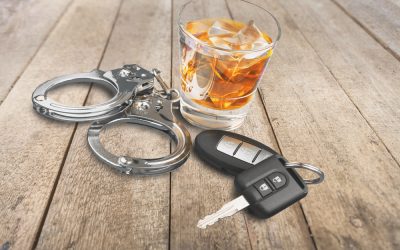
In California, driving under the influence (DUI) is considered a grave offense, and the legal system actively prosecutes such cases to safeguard the public from the hazards of intoxicated drivers. If you or someone you know has been apprehended for DUI, you may be curious about which authorities are responsible for prosecuting these cases and how the procedure occurs. This blog post will explore the intricacies of the DUI prosecution process in California, identify the various entities involved in managing these cases, and illustrate how the legal system functions to guarantee that justice prevails.
The Role of the District Attorney’s Office
According to data from the California Department of Motor Vehicles (DMV), the state has more than 100,000 DUI arrests yearly. The first and foremost entity responsible for prosecuting DUI cases in California is the District Attorney’s (DA) Office. The DA’s Office represents the state and has the authority to file criminal charges against individuals accused of committing crimes, including DUI offenses.
District Attorney’s Responsibilities
In California, the DA prosecutes criminal cases, including DUI offenses. As the chief legal representative of the state, the DA’s primary duty is to uphold public safety and ensure that justice is served. Regarding DUI cases, the District Attorney’s responsibilities begin with reviewing police reports and evidence.
After a DUI arrest, the police will submit a report detailing the circumstances of the arrest, along with any supporting evidence, such as results from field sobriety tests, breathalyzer tests, and blood tests. The DA’s Office will review these reports and evidence to determine whether sufficient proof exists to charge the individual with a DUI offense. If the DA’s Office determines enough evidence to support a DUI charge, they will file formal charges against the accused.
The charges may range from a misdemeanor DUI for first-time offenders to a felony DUI for repeat offenders or cases involving aggravating factors, such as injuries or fatalities. The District Attorney also represents the state in criminal proceedings, presenting the case against the accused individual before a judge or jury. This involves working closely with law enforcement agencies and witnesses to build a strong case and advocating for the appropriate penalties and consequences based on the specific circumstances of the DUI case.
Working with Law Enforcement Agencies
Working with law enforcement agencies is crucial to the DA’s responsibilities in prosecuting DUI cases in California. The relationship between the DA’s Office and law enforcement agencies, such as the California Highway Patrol (CHP), local police departments, and the sheriff’s office, is built on collaboration and information sharing.
Law enforcement agencies are responsible for conducting DUI investigations, administering field sobriety tests, breathalyzer tests, and blood tests, as well as gathering additional evidence and witness statements. All this information is then forwarded to the DA’s Office for review and potential prosecution.
The cooperation between the District Attorney’s Office and law enforcement agencies ensures a streamlined and efficient process for handling DUI cases. Law enforcement officers are often called upon to testify in court, providing firsthand accounts of the DUI arrest and the defendant’s level of impairment. Their expertise and testimony can play a significant role in securing a conviction.
Moreover, the District Attorney’s Office may provide guidance and training to law enforcement officers on DUI enforcement and the legal aspects of DUI cases. This collaborative relationship is essential in promoting public safety and holding impaired drivers accountable for their actions on California’s roads.
The Role of City Attorney’s Offices in DUI Prosecutions
In some jurisdictions in California, the City Attorney’s Office may be responsible for prosecuting misdemeanor DUI cases. This occurs in cities with a large enough population and resources to support a separate City Attorney’s Office.
The Jurisdiction of City Attorney’s Offices
City Attorney’s Offices typically handle misdemeanor cases within city limits, whereas the District Attorney’s Office prosecutes cases in unincorporated areas or are considered felonies. Misdemeanor DUI cases are generally less severe and involve first-time or second-time offenders without aggravating factors, such as injuries or deaths resulting from the DUI.
The Prosecution Process
The prosecution process for DUI cases in California involves several steps, from the initial arrest to the final resolution in court. This process is led by the District Attorney’s Office or the City Attorney’s Office, depending on the jurisdiction and the severity of the case. Here is an overview of the process:
- Charging and Pretrial Procedures: The prosecutor files a complaint in court after reviewing the evidence, and the defendant is arraigned. The pretrial phase includes filing motions, engaging in discovery, and potentially negotiating plea agreements.
- Trial Process: If a plea agreement is not reached or the defendant pleads not guilty, the case proceeds to trial. The prosecutor presents the evidence against the defendant, while the defense attorney challenges it and presents their case.
- Verdict: After both sides present their closing arguments, the judge or jury renders a verdict based on the evidence and testimonies presented during the trial.
- Sentencing: If the defendant is found guilty, the judge determines the appropriate sentence based on the specific circumstances of the case, which may include fines, jail time, probation, license suspension, and mandatory alcohol education programs.
Why Legal Representation Matters
Given the complexity of DUI cases and the potential consequences of a conviction, it is crucial to have experienced legal representation during the process. Hiring a skilled DUI defense attorney can help ensure that your rights are protected and that you have the best chance of achieving a favorable outcome in your case.
The Role of a DUI Defense Attorney
A DUI defense attorney can help you navigate the legal system and develop a strong defense strategy. They will review the evidence against you, evaluate the legality of the traffic stop and subsequent arrest, challenge the results of field sobriety and chemical tests, and negotiate with the prosecutor.
Potential Consequences of a DUI Conviction
A DUI conviction in California can result in severe penalties, including fines, license suspension, mandatory alcohol education programs, probation, and even jail time. Additionally, a DUI conviction can have lasting effects on your personal and professional life, including increased insurance premiums and potential difficulties securing employment or housing. A Los Angeles DUI attorney is a great resource for learning more.






